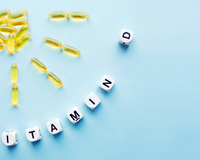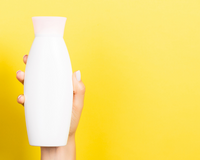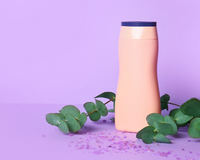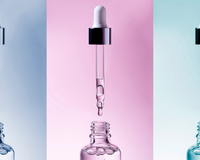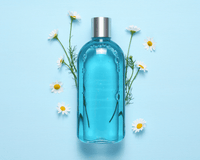Best Acne Anti Aging Skin Care Products
It's hard enough to choose best acne anti aging skin care products for acne or signs of aging when you only have to deal with one or the other. But it can be very frustrating to have to deal with both at the same time.
If you use acne treatments, you might worry that they will make your skin dry or flaky, which will make the signs of aging even worse. On the other hand, if you use anti-aging products, especially ones that are creamy or thick, your acne and clogged pores are likely to get worse.
How to act? Use a mix of anti-acne products that won't make wrinkles worse and anti-aging products that won't make acne worse. This is the basic solution to this problem. And, believe it or not, there are actually products like this!
How To Choose The Best Acne Anti Aging Skin Care Products?
Anti-acne products must be gentle, not drying, and soften the skin, but still be very good at getting rid of acne. And the powerful anti-aging products you use should have smooth, light textures and no ingredients that clog pores.
The best acne treatment to start with is a salicylic acid-based exfoliant that you leave on your skin (BHA). You also need an acne treatment with 2.5 percent benzoyl peroxide, which works with salicylic acid to keep acne under control.
These are the two most important anti-acne ingredients, and you should try them first before going to a professional. They work great even if you have both acne and signs of aging.
For anti-aging, you should use the lightest formulas that are full of ingredients that help normalize and rejuvenate your skin, making it smooth and glowing. These amazing ingredients don't have to be in the form of a cream or lotion. Instead, they can be in the form of a gel or fluid that hydrates the skin but doesn't clog pores.
When Should You Use The Best Acne Anti Aging Skin Care Products?
There are some things you can't do anything about when it comes to how your skin changes as you get older. Chronological aging is a set of changes that happen to everyone as their birthdays come and go. As we age, our skin loses collagen, elastin, fat, and bone.
Around age 35, our bodies start to naturally break down collagen and elastin and make less new collagen and elastin. This makes our skin less firm and causes fine lines and wrinkles to show up.
The other kind of aging, called intrinsic aging, is a bit more complicated and is usually caused by the person themselves. Intrinsic aging is caused by things like the sun's harmful UV rays, what we eat and drink, and other lifestyle habits like smoking that can hurt our skin. These outside factors stop collagen from being made, which leads to more fine lines and wrinkles. They also cause sun spots, hyperpigmentation, and uneven skin tone and texture to show up.
What's Inside Of The Acne Anti Aging Skin Care Products?
This early aging of the skin can't be stopped or turned around completely, but you can control some of its effects. You might think that since your skin is getting, um, more mature, you could finally stop worrying about the acne that bothered you when you were a teenager.
Acne in adults is real, and it can even stick around after menopause. The good news is that a lot of the ingredients used to treat signs of aging are also used to treat acne. Using them together in your skin care routine can be like giving them both a one-two punch.
Retinols/Retinoids
Most dermatologists think of this wrinkle-fighting ingredient that you put on your skin as a miracle. Both over-the-counter retinols and prescription-only retinoids (which are stronger but also harsher) speed up the turnover of skin cells, stimulate collagen production, and help treat hyperpigmentation and acne. If you use retinol as part of your skin care routine, you will have less blackheads, whiteheads, fine lines, and wrinkles.
Before, you could only get Differin with a prescription from a dermatologist. Now, you can buy it in the acne aisle without a prescription.
Glycolic Acid
This alpha-hydroxy acid comes from fruit and is great for all skin types. It's even safe to use while pregnant or breastfeeding. Glycolic acid has been shown to help with mild acne. This is likely because it speeds up skin turnover and gets rid of old, sticky skin cells.
It has also been shown in many studies to slow the aging process by improving skin tone and discoloration, skin texture, collagen production, and the skin's overall glow. There are a lot of skin care products that contain glycolic acid, which is a good thing.
Salicylic Acid
This beta-hydroxy acid has been used for years to treat acne. It is folliculotropic, which means that it has attracted to the hair follicle, which is where pimples start. Salicylic acid gets rid of the sticky cells in the hair follicle and oil gland ducts that can cause acne. It is also very good at getting rid of the dark spots leave behind by acne, especially on darker skin types.
It helps even out the tone and color of your skin and has a small amount of collagen-stimulating power. You won't have a hard time finding skin care items with salicylic acid in them.
Azelaic Acid
Azelaic acid is a natural acid that has found in barley, rye, and other grains. It is a powerful antioxidant, antibacterial, and comedolytic, which means it keeps pores from clogs and keeps pimples from forming. Azelaic acid has great skin brightening properties that can help stop the signs of aging. Dermatologists often use it on patients with melasma (excessive darkening of the face caused by hormones) or too much sun damage. It works to brighten skin that isn't normal, but it doesn't hurt skin that is normal. It is also an antioxidant, which means it protects the skin from damage caused by free radicals. This means there will be less fine lines and wrinkles.
You should start with these anti-aging and acne-fighting products, and then you can think about adding others. A lot of research has shown that niacinamide and retinol help reduce the size of pores and have many anti-aging benefits, such as making skin tone, loss of firmness, and wrinkles look better.


